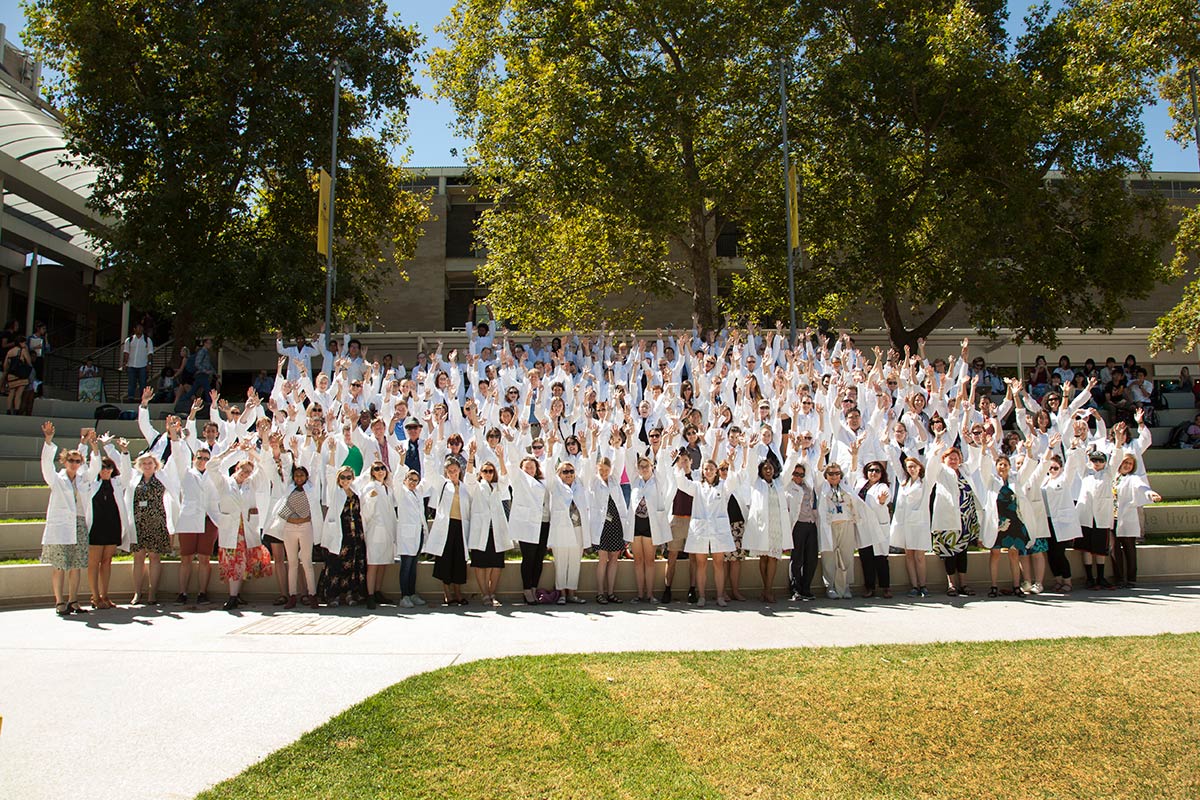
National experts gathered at Flinders University this week to innovate STEM teaching.
The Australian Conference on Science and Mathematics Education (ACSME), from 26 to 28 September, focused on ‘Future learning, future teaching’ with presenters and attendees looking to share and apply new approaches to teaching and learning STEM (science, technology, engineering and maths) subjects.
The conference brought together tertiary experts in math, science and information technology from around Australia to share knowledge and instigate change in how these topics are taught, with an aim to optimally prepare students for the modern, rapidly changing world.
The two-day program includes sessions on the changing face of teaching, the changing role of teachers, preparing graduates for an uncertain future and the emerging models of curriculum design, delivery and assessment, followed by a practical workshop day.
In the opening address Flinders University Vice-Chancellor, Professor Colin Stirling, highlighted the value of a holistic, future-focused STEM education.
“Once you have that grounding in science it never leaves you, and we know this will be even more vital in our increasingly high-tech, data-driven world where 40% or more of our near future jobs are yet to be invented,” he said.
Professor Stirling also noted the importance of a well-rounded education that harnesses new technology and teaching methods, prepares students to be creative risk-takers, and prepares them with valuable communication and workplace skills.
“We know that while people who leave university with a STEM degree may do well in a job, those who have acquired a strong ability to communicate will do better.
“An integral part of STEM learning is building experts who can communicate their insights.”
Professor Stirling also said it is important that educators consider the reasons around unemployment rates that have been reported this year for some maths and science graduates.
“Partly this relates to specific programs; a lack of practical experience has also been blamed and student attributes and expectations are thought to play a role.
“No degree is bullet proof, and no student can afford to rely on it as their sole ticket to land a job, but it’s up to us as producers of the future workforce to address all of these challenges,” he said.
Flinders University has always promoted a multi-disciplinary approach to learning which includes building communication and business components into science and maths focused degrees, such as its Enterprise topic that teaches entrepreneurship skills and is available to any undergraduate student.
Professor Stirling also noted the new range of STEM coded topics that Flinders University had introduced this year.
“These apply to new subjects that involve a collaborative, cross discipline approach such as computational skills for scientists, research skills for scientists and an industry advised topic where STEM students work together to solve real problems,” he said.
“Above all, we want to ensure our STEM graduates leave Flinders as creators rather than consumers; questioners who challenge established paradigms; workers who can generate new models and ways of thinking, who value data, and who are not afraid of taking risks.”
The ACSME conference is the pre-eminent annual event for Australian tertiary science and maths educators, encompassing biological sciences, chemistry, geosciences, health sciences, information technology, learning and cognitive sciences, mathematics and statistics, molecular and microbial sciences, physics and psychology as well as the various fields of the applied sciences.
It is organised by the Australian Council of Deans of Science Teaching and Learning Centre’s conference organising committee, including award-winning STEM educator, Flinders University’s Professor Karen Burke da Silva.

